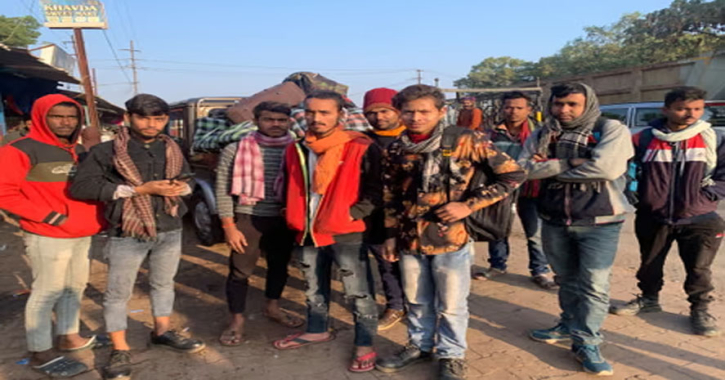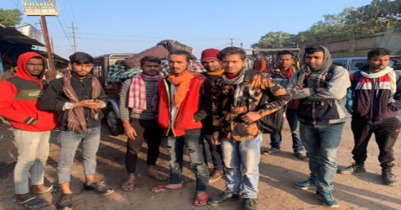Unpaid Wages, Searing Heat, Long Hours: Migrant Workers Abandon India’s Largest Renewable

Published : 23:30, 11 September 2025
Thousands of largely young migrant laborers, drawn from states like Jharkhand, Bihar, and Uttar Pradesh, are quitting their jobs at Khavda, the world’s largest hybrid renewable energy park in the Rann of Kutch, Gujarat. Attracting workers with promises of fair pay and improving livelihoods, the project has instead become notorious for exploitative labor conditions.
Workers report being forced to endure 12-hour shifts, blistering heat, and rudimentary living conditions in makeshift tents, often situated far from nearby villages. Access to essentials such as power, clean drinking water, and decent sanitation is minimal or non-existent. Communications with families back home are hindered by poor mobile connectivity.
Many workers allege that they were not paid on time or in full. This is complicated by a multilayered subcontracting system in which the developers rely on a chain of contractors and labor agencies.
Payments to these middlemen can be delayed, and there are procedural holdbacks—such as 10% of payments being withheld for a year as surety, making timely disbursement to workers uncertain. Wage theft and delayed pay have forced some workers to borrow from relatives or even sell family land just to cover transportation home.
Beyond financial hardships, there are reports of harsh treatment by supervisors, including verbal threats suggesting that if a worker disappeared, nobody would notice. Workers recount multiple instances of enduring grueling days followed by negligible support from higher-level firms or sponsors, as complaints rarely result in action, partly because many workers are not fully aware of reporting mechanisms and rarely pursue formal channels.
The scale of the facility is immense: covering over 72,400 hectares and intended to host solar and wind infrastructure totaling 30 gigawatts by its projected completion in 2028, the park is designed to power about 18 million homes and offset 58 million tonnes of CO₂ emissions annually. It is backed by major developers like NTPC, Gujarat Industries Power Company, and Adani Green Energy. Despite the green ambitions, worker welfare appears neglected, raising concerns about exploitation in unregulated labor in the rapidly expanding renewable energy sector.
Advocates argue that the sector vital to India’s climate targets is effectively unregulated in terms of labor. Job titles are generic (“construction worker”), obfuscating the unique challenges of “solar labor,” while complex subcontracting arrangements reduce transparency and accountability. Local officials, while urging workers to report abuses, acknowledge the challenges migrants face in doing so. Contractors themselves cite financial pressures from delayed payments from higher-tier developers and the high cost of providing proper amenities, both of which inhibit better conditions.
The resulting labor churn not only harms workers economically and psychologically but may undermine India’s non-fossil fuel target of 500 GW by 2030, as chronic turnover and poor morale threaten project deadlines.
Sources: The Guardian.
BD/AN











